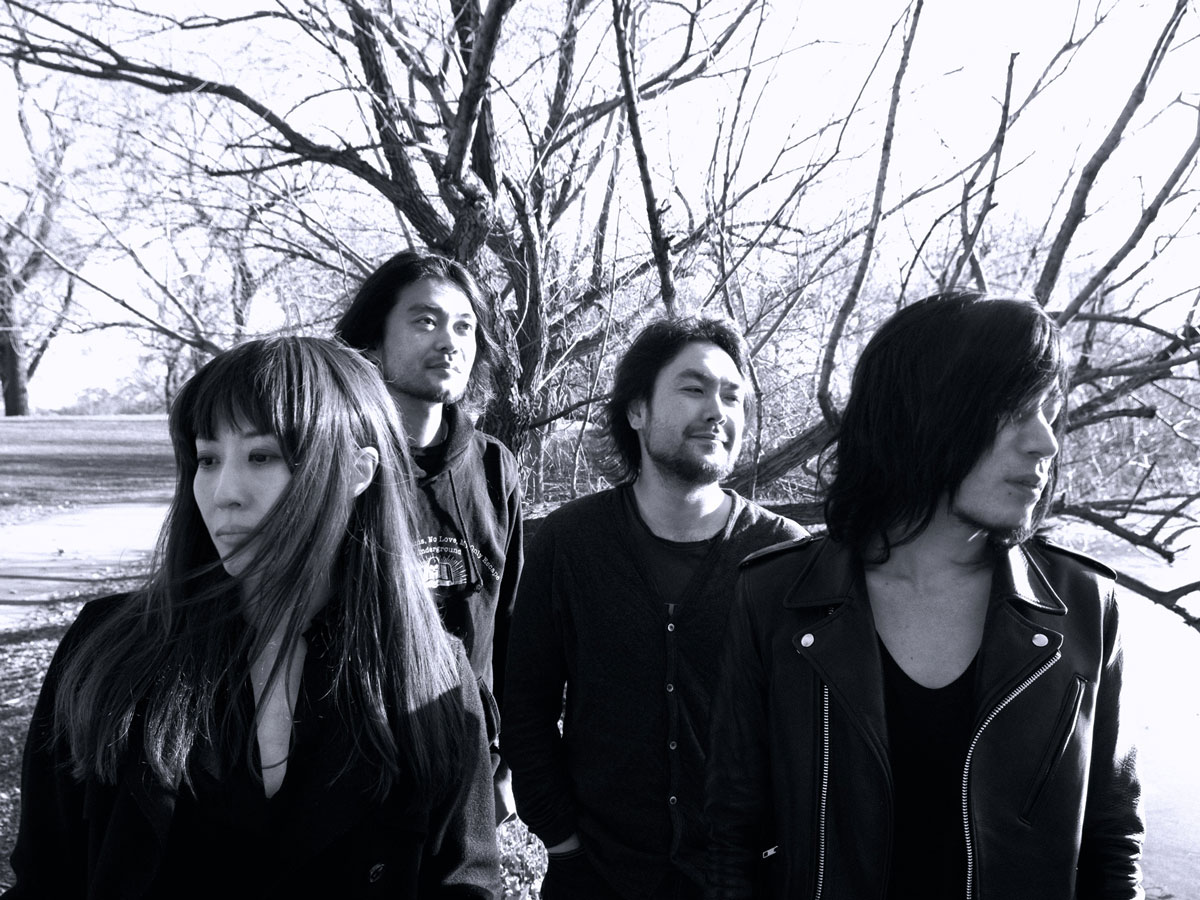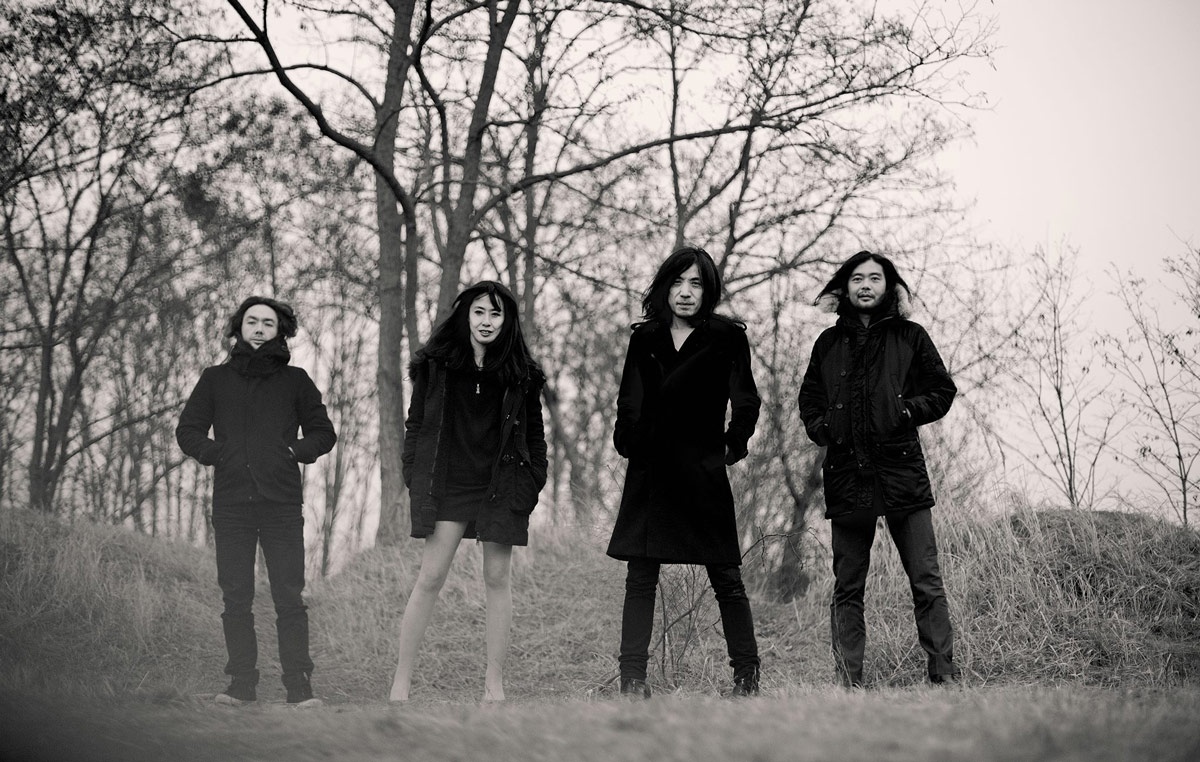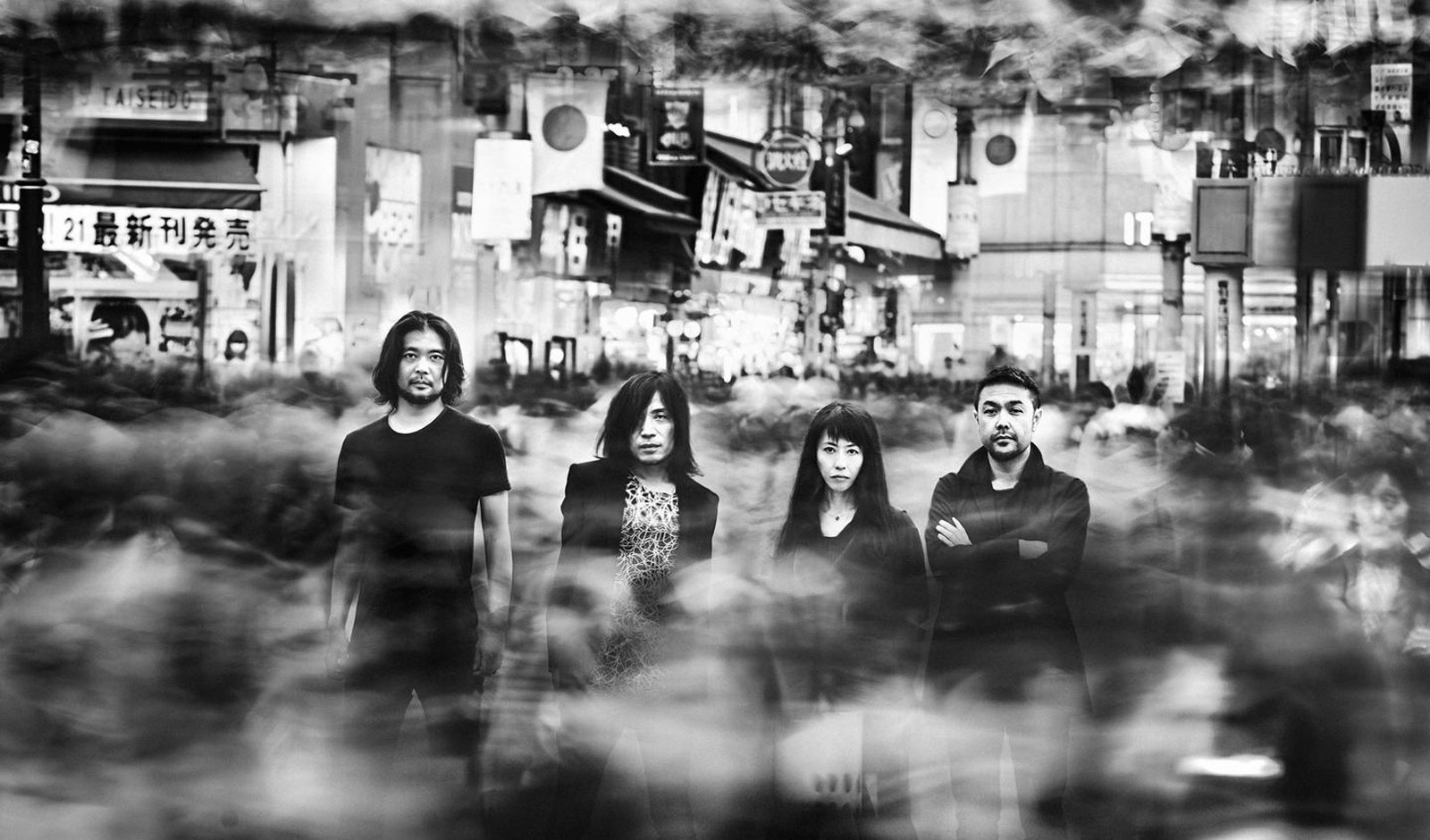Looking for Hope in a Long, Dark Tunnel with MONO
 Thirsty for JUICE content? Quench your cravings on our Instagram, TikTok and WhatsApp
Thirsty for JUICE content? Quench your cravings on our Instagram, TikTok and WhatsApp
We catch up with MONO’s lead guitarist Takaakira ‘Taka’ Goto for a quick chat just before they hit the stage at KLPAC last week as part of their tour for new album Requiem for Hell.
Text Aizyl Azlee
Having been a band for 18 years now, Japanese “post-rock” outfit MONO says it feels age is starting to set in and wants to make way for the newer generation. In our interview, principal composer Taka gives some insight into the underground scene in Japan that he has long described as struggling due to bands being pressured to partake in the commercial machine in the country, and how he wants to give bands a better platform.
In short; he’s organising an underground festival with fellow veterans, still hates being called post-rock, and says will leave dancing to other people.
Where is the band based now?
Our home is still Tokyo. We record in Chicago in the States, but no we don’t live there – still in Japan.
What is the current relationship with Japan? Because in your interviews, whenever you talk about the underground scene in Japan…
[I say] that it sucks? (Laughs)
“Japanese culture is crazy now. It’s very childish, to me. There’s no art… like just business, you know?”
Yes, and we assume that is why you focus on touring outside more… but what is your relationship with Japan now?
Well, now it’s been 18 years, so when we came back to Japan, since last year, I started to organise a festival. A DIY festival with friends of mine from bands called Envy and Downy. And I met with Japanese bands through friends and this year we are going to invite 30 underground bands from Japan.
Hope it works, because Japanese culture is crazy now. It’s very childish, to me. There’s no art… like just business, you know? But still, there are some great bands who can be playing in America, Asia, Europe, very strong hardcore bands. We will make space for them to play, to introduce to the world.
Still trying to avoid the advertising and marketing machine?
Yeah, yeah. But we got older. And the older guys have to give something special [to pass down] to the young people. So, it’s a different position now.
“… we don’t want to sell our soul. We don’t want to work with major companies. We want to do what we do.”
Do you still find more comfort in touring Europe and America though?
I don’t know why, but when we couldn’t be satisfied in Japan, we started in the States [where we felt that] we could [just put our] trust in the music to find success, because we don’t want to sell our soul. We don’t want to work with major companies. We want to do what we do. So, we just continued.
But even then, you’ve mentioned in the past that you’ve spent years playing show in places like Germany where people didn’t go to your shows…
Yeah, it was very hard. No one came. We spent about six years maybe [trying to get people to come to our shows].
So what made you so sure that these places were where you wanted to spend your time instead?
We just [had faith]… that if they have a good brain, a good soul, if they have a good ear, they cannot ignore our live sound. We trusted it. So, we took the opportunities to play in Germany, and never gave up. And finally, pfft… (slaps hands to show a skyrocket in attendance)
“… everybody actually feels very alone in this life, and music can be a bridge for people like you and me.”
Speaking of trusting the music, due to the type of songs you play, there’s barely any audience interaction. How does the band measure whether people like it or not?
Well, I guess everybody actually feels very alone in this life, and music can be a bridge for people like you and me. And if we can share something small, important things, you can feel like, “Hey… yeah, we can see each other.” It’s very important.
So, I just want to feel like I’m not alone in the world. But sometimes in Japan, there are so many things; desire, good food, good home, good car, good money, and they go, “Hey, music can be a business.” You know? It’s not art. So, I can trust more art outside of Japan more than Japan, because in the States, in Europe, for the artistes, art is all the time in their life. Art is very close. Art can be inside of a religion, or inside a book.

Do you still not like to be called post-rock?
No. Because when we started the band, there was no ‘post-rock’. And after that, people started going, “Post-rock, post-rock,” and then now everywhere in the world [when we are referenced], they say, “Hey, MONO is post-rock.”
Then how would you prefer to be categorised?
Just instrumental music. We’re just trying to find a unique way… something original, that no one has touched before. But, people will keep saying ‘post-rock’.
As for the new album, Requiem for Hell, we understand it’s largely influenced by Dante’s Divine Comedy, or at least is very closely linked to it. Tells us more about that.
It was by accident though. It was after I finished all the songs that I realised it.
“… Divine Comedy is a fucking old book, and that book already explains how much as people, we have our desire, and the chaos it creates in the world.”
So what was the inspiration before stumbling on Divine Comedy?
Well, I’m always thinking about how we all have our limits… which is death. And now as I’m getting older, now I’m thinking what we can leave as a message. And Divine Comedy is a fucking old book, and that book already explains how much as people, we have our desire, and the chaos it creates in the world.
It was very interesting for me. Still the world is having the same argument, making war, it’s never ending. [It’s all the] same shit as Dante’s generation. People haven’t changed. Stuck in the same routine. It’s crazy.
Speaking of time, MONO’s been around for a long time, how do you guys think you fit in the current age of music streaming and the singles culture?
(Laughs) We just ignore it. I don’t care. Because art is art.
No fears of regressing to times like when no one was going to your shows in Germany?
Before CDs and vinyls, there were generations of musicians… Beethoven, Mozart, they didn’t sell CDs or vinyl. They played music… shaking air. Live shows are different.
Some bands are over produced. On the CD, the sound great but live isn’t good. We are like professional performers… professional musician.
Even when we toured in the States in 2003, 2004, there wasn’t a big internet culture, so we still put our trust in the live show. We still continue the same thing. The live shows. If the people show up at our shows, the people will never forget.
“It’s not enough to just sing about hope. You won’t feel anything.”
Tell us about your process. Nine studio albums on and MONO’s underlying theme remains the play of light versus dark, despair and hope. What draws you to this type of storytelling?
It’s not enough to just sing about hope. You won’t feel anything. For me it’s not enough. So, when I wanted to explain about hope, I imagine the journey is like a tunnel. We are walking in a tunnel, it’s total darkness. And it’s scary, because we don’t know how to get to the brighter place. We have to push to keep hope going into the darkness, into the tunnel. Keep going, keep going. And finally, we can see the small light, it’s the exit through the tunnel, so it gets brighter and brighter… and finally, oh, it’s beautiful, a brighter place.
If the audience wants to experience a brighter place, the hope, I need to explain the distance it takes to get there. It’s sad and dark, but beautiful.
Last question. With the type of music you make, your audience is very still at your concerts. What are your thoughts on dancing?
It’s cool. But maybe someone else can make the music for that instead of us. Because we don’t dance.
MONO performed at Pentas 1 of the Kuala Lumpur Performing Arts Centre (KLPAC) on Thursday 19 January ’17, organised by Soundscape Records. It was MONO’s fifth live performance in Malaysia since 2008.
Their album Requiem for Hell was recently released in December 2016.


 Get Audio+
Get Audio+ Hot FM
Hot FM Kool 101
Kool 101 Eight FM
Eight FM Fly FM
Fly FM Molek FM
Molek FM